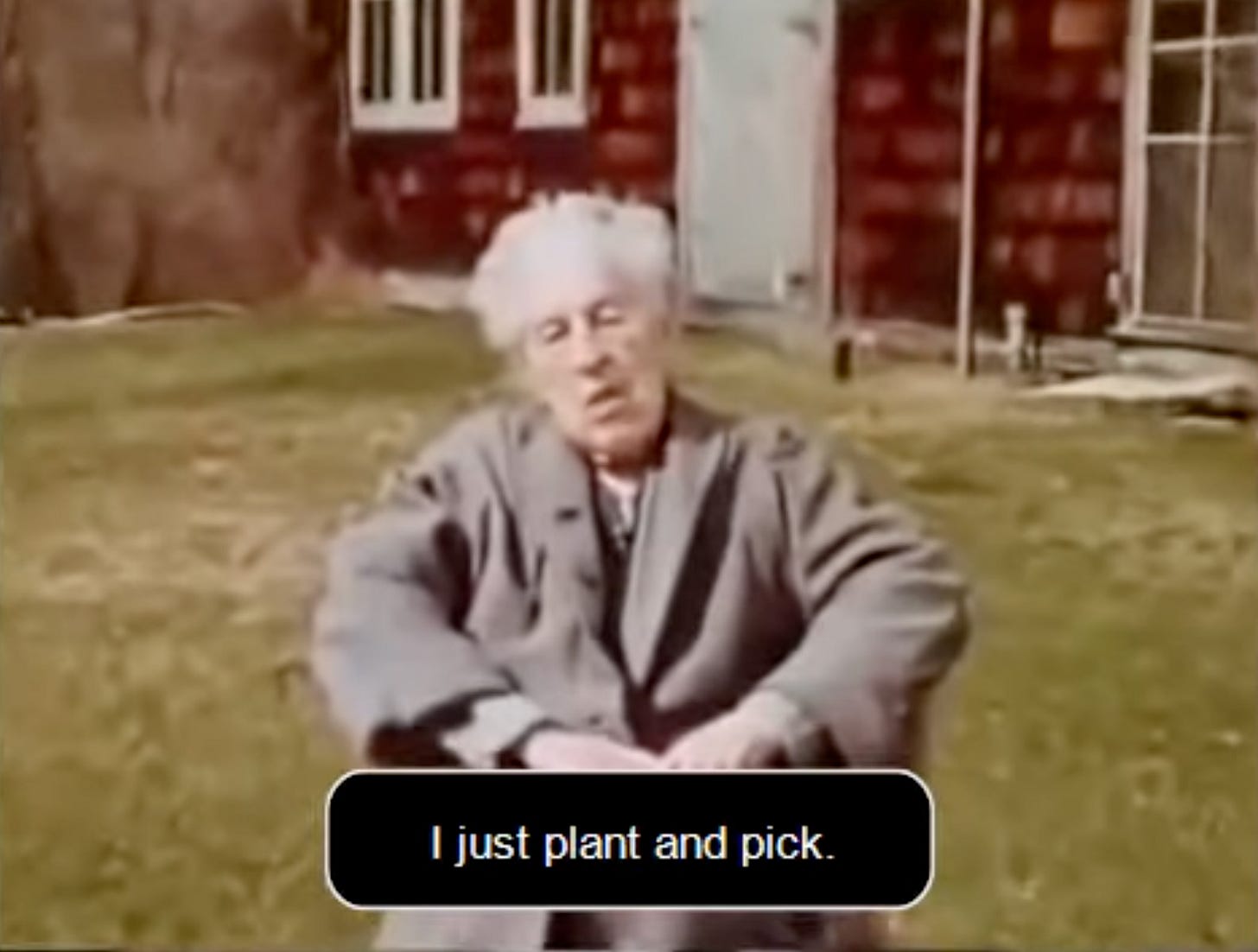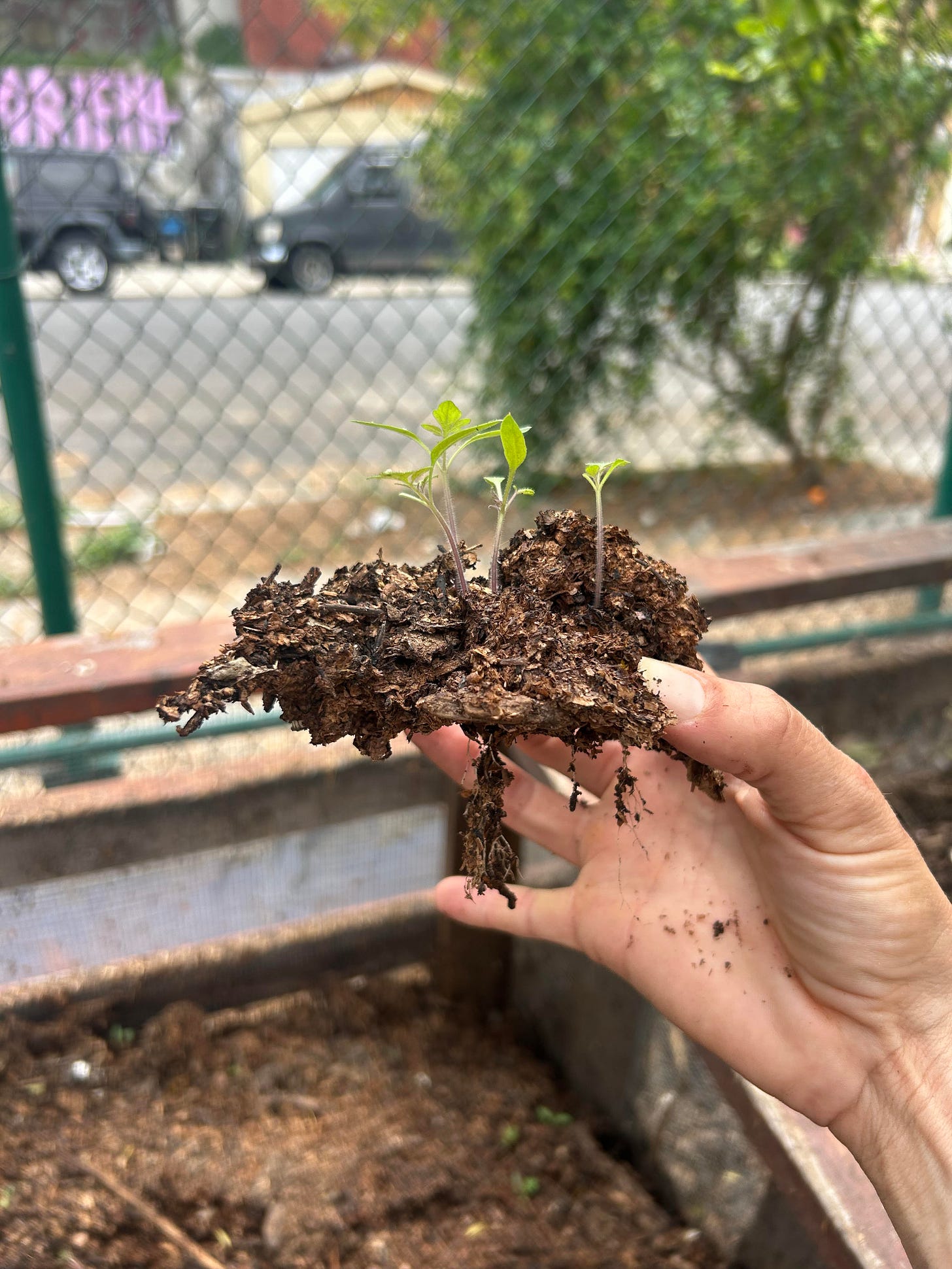On the aura of Ruth Stout & not sifting my compost
A mini-manifesto on why I don't actually think you need to do it :spicy pepper:
I’ve been reading Ruth Stout’s second book lately.
For those who aren’t familiar, Ruth Stout was a gardener and writer who “invented”** the no-work gardening method, wherein she advocated for year-round heavy mulching in the garden and not much else. (She even disparaged composting as too much effort.)
She started publishing missives to this effect in the early 1950s, with a a first book titled simply: “How to Have a Green Thumb Without an Aching Back: A New Method of Mulch Gardening.” Her advice was the polar opposite of the era’s prescribed norms, and—as you can imagine— she got a tremendous amount of shit for it. People wrote her from every corner of the nation complaining that what she proposed did not align with their expectations for good garden management.
Her second book, “Gardening Without Work: For the Aging, the Busy, & the Indolent” (this woman had a flair for subtitles) summarizes the majority of these concerns and then responds to them with what can only be described as the literary equivalent of a middle finger. Ruth Stout did not give one crap whether or not you agreed with her about how she gardened. The mulch method was how she did things, it worked for her, she’d seen it do so with her own eyes, and that was good enough for her to keep on about it. I admire her gumption.
When I first started out composting, and writing and sharing about compost, I would often find myself carefully tracing the perimeter of received industry wisdom. People told me not to start seeds in compost. They told me not to compost citrus. (They still do.) They frequently yell at me for mentioning biodegradable products. And they always tell me to sift my compost before use.
This last one has particularly puzzled me for awhile now.
Truthfully, I have never sifted the woody bits from my compost before using it and I can’t imagine I ever will. The logic amongst gardeners regarding this manuever is that undigested wood in your compost, once added to your soil, will create competition with your plants for nitrogen, which may negatively impact their growth.
To this, my honest (Ruth Stout-inspired) response is:
Who cares? And also: it doesn’t make sense!
There’s plenty of nitrogen to go around in healthy soil. In event that your soil is not especially up-to-par, I can’t imagine a little competition would so significantly impact the flourishing of your plants to warrant the requirement of sifting. Additionally, and perhaps most importantly, removing the woody bits would feel to me like avoiding a short-term and somewhat meaningless consequence at the expense of a long-term and exceptional benefit, which is that all that partially-decayed wood is actually an excellent way to build biological activity in your soil. (This is the whole basis of hügelkultur.)
My advice is to use finished compost, as is, even with partially-digested wood chips and twigs still present. Bury it in your garden bed. Use it as a mulch. Hell, plant some seeds directly into it and see what happens!
If you are using compost directly in a garden bed or around growing plants, though, what you will want to make sure you don’t have is undigested food waste. This, perhaps ironically, may introduce an abundance of nitrogen that can harm young or sensitive plants. (I have, admittedly, killed at least one or two plants this way.) And you’ll also want to run a hand through and try to remove any plastic waste or produce stickers that might have crept in. But as for the undigested woody bits, those just strike me as future food for soil microbes. Leave it alone!
Love,
Cass
** although Ruth herself would refute this, writing in her second book: “Now and then I am asked (usually by an irritated expert) why I think I invented mulching. Well, naturally, I don’t think so: God invented it simply be deciding to have the leaves fall off the trees once a year.”
Bless her soul.





Ha! What a great title writer- and gardener she was! Thank you for discovering Ruth to me! I am a follower of Natural Farming and indeed the principles are often the same, the name changes. But whatever gets people putting their hands in the soil and cooperating with nature is good!
I love Ruth's outlook on life. The principle of working smarter not harder, is easy to say but extremely difficult for many .